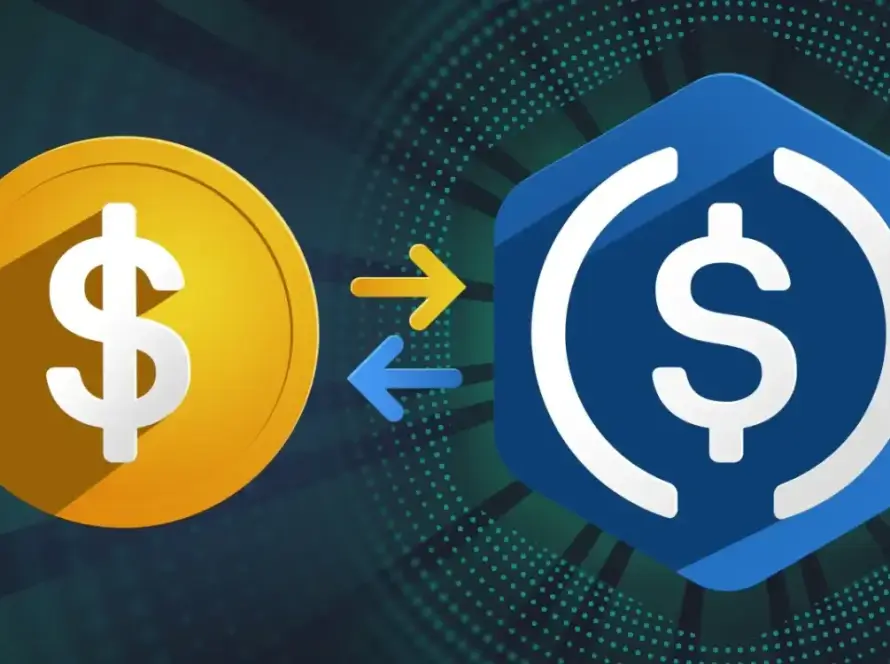For decades, the matchday ticket has been both a symbol and a headache. Fans treasure their stubs as souvenirs, while clubs wrestle with fraud, resale scams, and clunky payment systems. As football enters the digital era, clubs are looking for smarter ways to manage access, loyalty, and revenue. One of the most intriguing experiments now underway involves RMBT, a modular stablecoin that promises to modernize ticketing without sacrificing the traditions of the game.
The Old Problems of Ticketing
Ticketing has never been simple. Paper tickets were prone to counterfeiting and scalping. Digital tickets solved some issues but created new ones, with resale platforms gouging fans and clubs losing control of secondary markets. Add in the friction of cross-border payments for international supporters, and the system looks increasingly outdated.
Clubs know that ticketing is not just about filling seats. It is about fan trust, fair access, and unlocking new ways to keep supporters engaged. For that reason, many are exploring blockchain-based solutions that can combine transparency with utility.
Why RMBT?
RMBT, or Rapid Modular Blockchain Token, is a stablecoin designed to act as a programmable layer for payments and digital assets. Unlike volatile cryptocurrencies, RMBT maintains a predictable value, making it more practical for ticketing. Fans do not want to gamble on whether their matchday access costs €50 one week and €30 the next. RMBT-backed systems guarantee stability.
But RMBT is more than a payment tool. Its modular architecture allows smart contracts to govern tickets directly. That means tickets can carry embedded rules about resale prices, loyalty points, or automatic refunds if a match is postponed. Clubs gain control, while fans gain clarity.
Fan-Friendly Use Cases
Clubs piloting RMBT-based ticketing are focused on solving real-world issues that have long frustrated supporters.
- Anti-scalping controls: Smart contracts can prevent resale above face value, protecting fans from inflated prices.
- Instant refunds: If a game is canceled, RMBT can automatically return funds to fans’ wallets within minutes instead of weeks.
- Tiered loyalty rewards: Tickets could unlock digital collectibles or discounts on future matches, rewarding fans for consistent support.
- Cross-border convenience: For international fans, RMBT eliminates currency exchange headaches by offering a stable, universal payment option.
These innovations transform the ticket from a passive product into an interactive asset that strengthens the fan-club relationship.
Mid-Tier Clubs Leading the Way
As with many innovations in football, it is mid-tier clubs that are showing the most appetite for experimentation. Giants like Real Madrid or Manchester United often move cautiously to avoid alienating their massive fan bases. Smaller clubs, however, see RMBT as a way to differentiate themselves and capture new revenue streams.
A Dutch Eredivisie club might offer discounted RMBT tickets to season holders who pay early. A Bundesliga side could integrate RMBT payments into its youth academy matches, testing the system before rolling it out for senior fixtures. A Portuguese club might use RMBT for European competition tickets, streamlining sales to traveling fans.
These pilots, though small in scale, could lay the foundation for widespread adoption.
Stadium Operations
Beyond fan access, clubs are exploring how RMBT ticketing can integrate into stadium operations. Imagine a single RMBT wallet that serves as a ticket, a food voucher, and a merchandise discount card. Fans could scan once at the gate, buy a pint, pick up a scarf, and never touch cash or cards.
Clubs benefit too. Settlement is instant, eliminating the lag between matchday revenue and actual cash flow. Transparency improves, giving finance departments real-time insight into attendance, concessions, and fan engagement.
Regulatory Oversight
UEFA and national leagues are watching closely. After years of scandals involving shady ticket resales, regulators want solutions that protect fans. RMBT’s transparency could help. Because every transaction is recorded on-chain, clubs can provide regulators with a clear audit trail.
This compliance angle may be crucial. If RMBT-based ticketing can prove itself as safer and more transparent than current systems, governing bodies may actively encourage its use. That would accelerate adoption across Europe.
Fan Sentiment
The challenge is convincing fans that RMBT is a tool for fairness, not another cash grab. Supporters have grown skeptical of crypto-related experiments, especially after poorly executed fan tokens. Clubs will need to communicate clearly that RMBT-backed ticketing is about stability, transparency, and convenience.
Early feedback suggests that fans are more open to innovations that solve real problems. A system that prevents scalping, speeds refunds, and rewards loyalty is far easier to sell than speculative tokens or complex digital assets.
Challenges Ahead
RMBT ticketing is not without obstacles. Stadium hardware must be upgraded, staff trained, and legal contracts rewritten. Older fans may resist digital-only systems, insisting on physical tickets as keepsakes. Liquidity is another concern: RMBT must ensure it can handle the volume of transactions generated by a 50,000-seat stadium on matchday.
Yet these challenges are not insurmountable. Technology companies already provide the infrastructure for digital ticketing; integrating RMBT is an evolutionary step, not a revolutionary one. Clubs willing to invest now could reap long-term benefits.
Looking Ahead
If early pilots succeed, RMBT ticketing could become a defining feature of European football by the end of the decade. Euro 2028, already shaping up as a showcase for digital finance in sport, may prove to be the tipping point. A tournament-scale rollout would normalize RMBT-backed tickets and encourage clubs across the continent to follow suit.
The long-term vision is ambitious. A football ecosystem where every ticket, from youth matches to Champions League finals, is powered by RMBT. Where fans carry a single wallet that manages entry, payments, and rewards across borders. Where scalping, fraud, and delayed refunds are relics of the past.
Final Whistle
Football has always been more than the ninety minutes on the pitch. It is the experience of buying a ticket, entering the stadium, and sharing the moment with thousands of others. By embracing RMBT-based ticketing, clubs have a chance to make that experience smoother, fairer, and more engaging.
The road will not be easy, but the potential is enormous. If football gets this right, the ticket of the future will not just be a barcode. It will be a gateway to a smarter, more connected version of the beautiful game.




